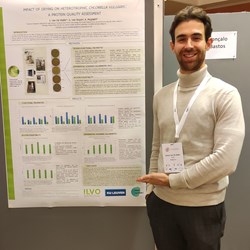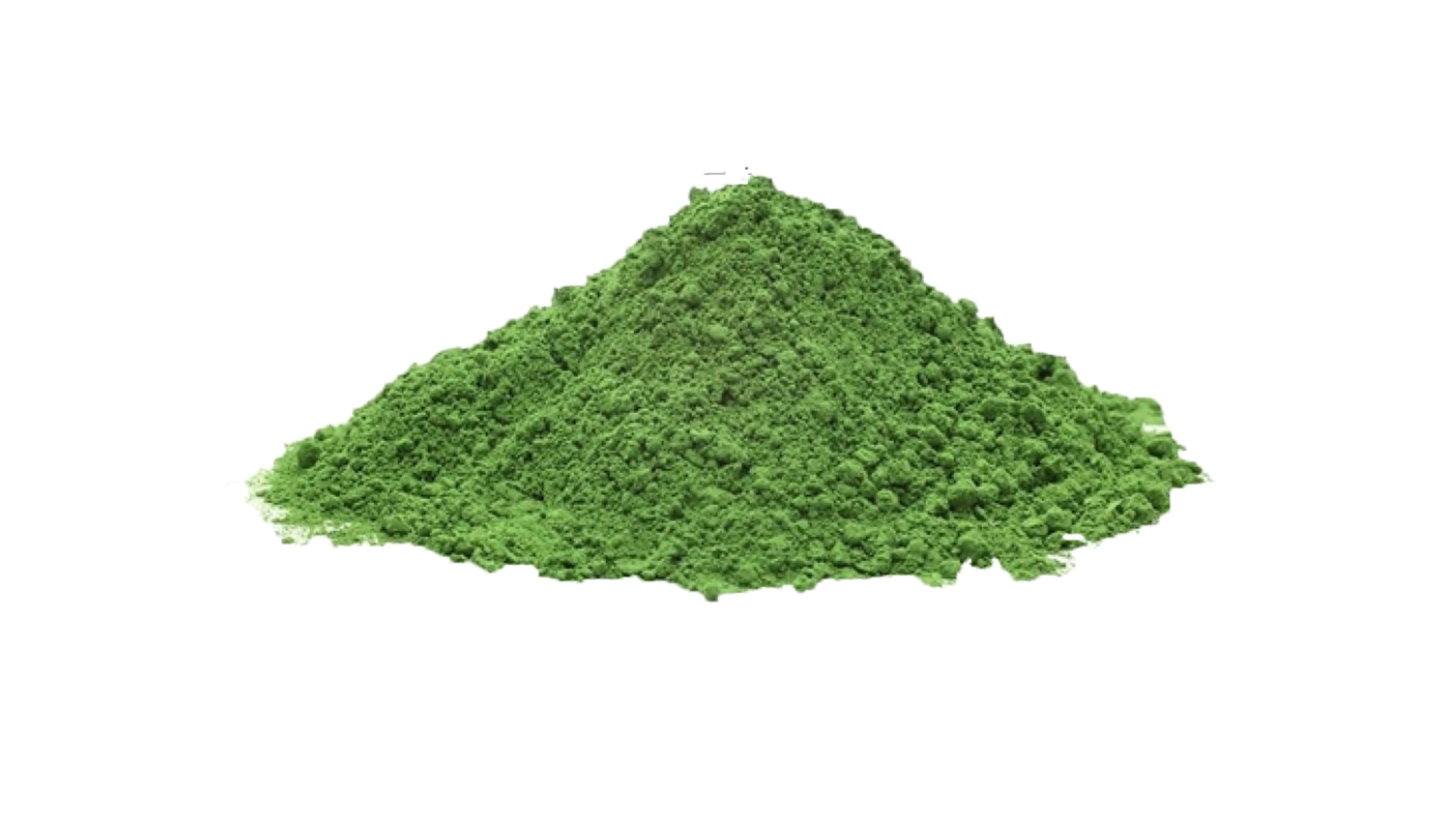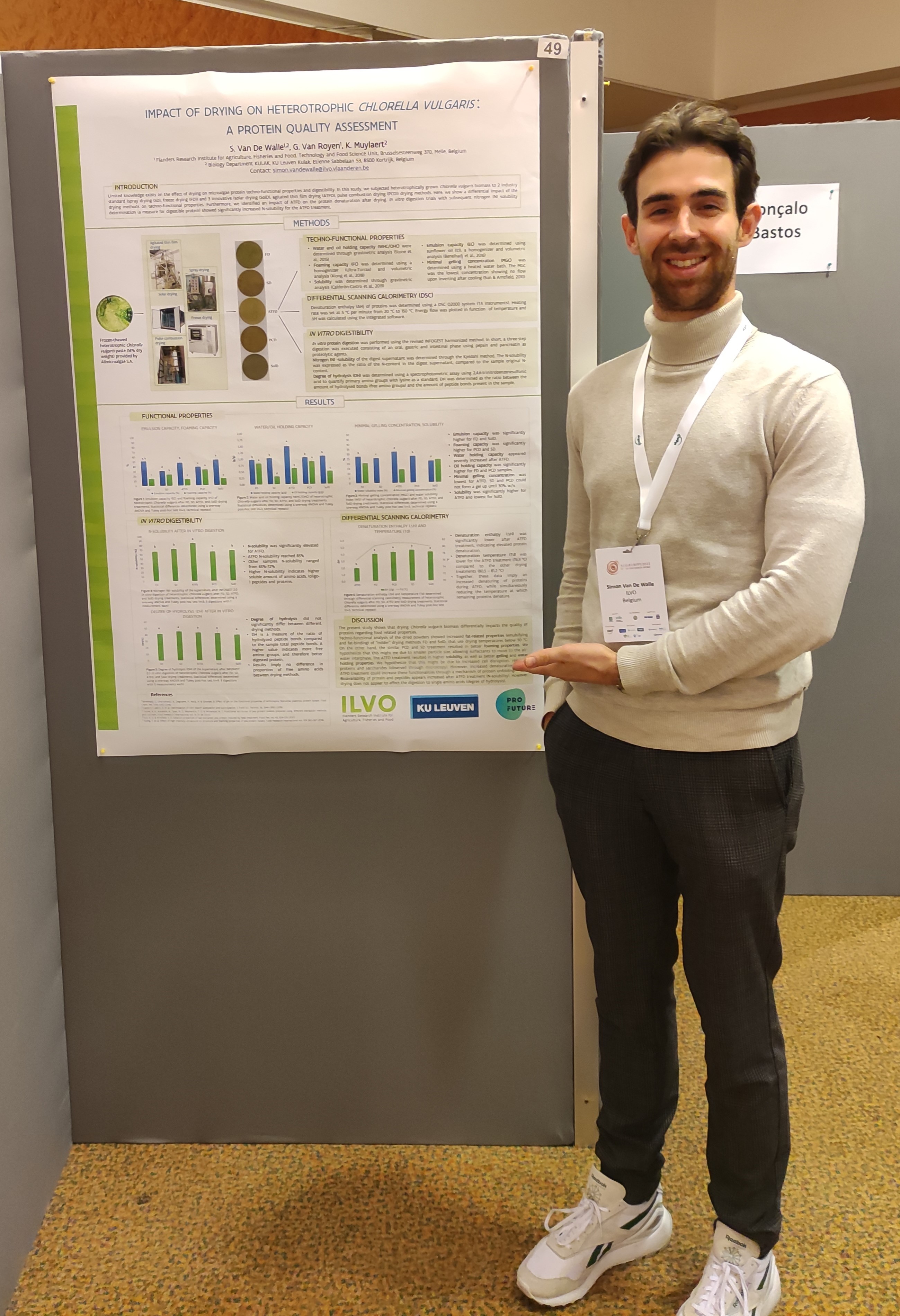


With the right processing, Chlorella vulgaris can serve as a promising and sustainable protein source capable of replacing both plant-based and animal-derived proteins. While challenges remain around taste and the efficiency of protein extraction, microalgal proteins could serve as a supplement to sustainable and innovative food products. These are the findings from the doctoral research of ILVO researcher Simon Van De Walle at KU Leuven/KULAK Kortrijk.
Plant-based proteins often lack the same quality and functional properties as their animal-based counterparts, making it more challenging to develop alternatives with comparable texture, stability and mouth feel. Microalgae may offer a solution. These microscopic organisms are rich in protein, can be cultivated sustainably and show excellent potential as functional food ingredients.
However, in order to fully exploit their benefits, we must understand how different processing methods influence the quality and functionality of microalgal proteins. This study focused on the microalgae Chlorella vulgaris and explored how drying techniques, cell disruption, protein purification and cultivation methods affect protein properties.

Drying microalgae
In the first phase of the research, various drying methods were tested, including freeze-drying, spray-drying and innovative approaches such as pulse combustion drying, solar drying and agitated thin-film drying. One notable finding was that agitated thin-film drying improved both the solubility and gelling properties of the proteins.
This makes it a suitable drying method for preventing dehydration and improving the nutritional properties. The different drying treatments also led to variations in flavour and aroma, which could be leveraged to tailor these properties to specific food uses.

Breaking down cell walls
Since Chlorella vulgaris has a tough cell wall that limits protein availability, mechanical techniques such as high-pressure homogenisation and bead milling were explored. These methods significantly improved solubility and emulsifying properties, making the algal proteins more comparable to soy proteins. This suggests that microalgae could be a serious contender as a plant-based alternative to traditional proteins.
Purifying proteins
Subsequently various purification techniques including isoelectric precipitation and ultrafiltration were examined to further enhance functionality by removing interfering substances such as lipids and carbohydrates. The results showed that specific extraction methods make the proteins suitable for different applications. Some extracts were ideal for use in meat alternatives, while others showed promise as egg substitutes in emulsions.

Does the cultivation method matter?
Microalgae can be cultivated in different ways: using light (photoautotrophy) or in darkness with an external carbon source (heterotrophy). This study showed that the cultivation method does influence the protein composition and functional properties, although the differences were limited. Algae grown in the dark exhibited better gelling properties, while those grown in the light exhibited improved foaming capacity.
Publication
Impact of processing steps of Chlorella vulgaris biomass on the quality and techno-functional properties of proteins, Simon Van De Walle, KU Leuven KULAK, 2025. De verdediging vindt plaats op 26 juni, KU Leuven/KULAK Kortrijk.

“It is always advisable to maintain a critical perspective on your own products and adjust them to contemporary needs where necessary”, emphasises Marijke Adriaens, CEO of frozen food company Fribona. “For consumers, taste is still the main consideration. It is essential to work towards a product that is, above all, tasty and visually appealing.”...

Scientists from KU Leuven have discovered how oil penetrates snacks during and after the frying process. Recent research findings point to advanced frying techniques that reduce oil absorption, as well as innovative methods to limit oil uptake during the cooling phase. This paves the way for the development of healthier snacks without compromising...

Food companies are increasingly targeting a wider range of consumer groups. Speaking at an event organised by Fenavian, Julian Mellentin of New Nutrition Business said this strategy offers significant opportunities to respond to the diverse health needs and interests of today’s consumers. “Consumers enjoy both animal and plant-based proteins”, he...

Backed by financial partners, Start it @KBC is launching the accelerator programme Scale it Agro, aimed at scale-ups offering sustainable and innovative agricultural solutions for agriculture and horticulture businesses. Kjell Clarysse, programme director at Scale it Agro, goes into more detail.